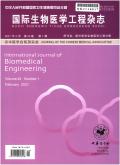Proliferation and invasion effect of astaxanthin on human ovarian cancer and its mechanism
引用次数: 0
Abstract
Objective To investigate the effects of astaxanthin on the proliferation and invasion of SKOV3 human ovarian cancer cells and to explore its mechanism. Methods MTT colorimetry was used to investigate the inhibition effect of astaxanthin on SKOV3 cells. Transwell assay was used to investigate the effect of astaxanthin on the invasion of SKOV3 cells. Flow cytometry was used to investigate the cell cycle of astaxanthin on SKOV3 cells. The effect of astaxanthin on cell cycle and invasion-related protein expression was investigated by Western Blot method. Results Astaxanthin had a significant inhibitory effect on cell proliferation and was concentration dependent. The invasive ability of SKOV3 cells was significantly decreased under the treatment of astaxanthin(P<0.05). Compared with control group, the proportion of SKOV3 cells in G1 phase in the astaxanthin-treated group was significantly increased. The protein expression of matrix metallo proteinase 2(MMP-2), matrix metallo proteinase 9 (MMP-9), and cyclin-dependent protein kinase 6(CDK6) and Cyclin A were significantly decreased in astaxanthin-treated SKOV3 cells compared with the control group(all P<0.05). Conclusions Astaxanthin can significantly inhibit the growth of SKOV3 cells and arrest the SKOV3 cell cycle in G1 phase, and can inhibit the growth and invasion of SKOV3 by regulating cell cycle and invasion-related proteins. Key words: Astaxanthin; Ovarian cancer; Proliferation; Invasion; Mechanism research虾青素对人卵巢癌症的增殖和侵袭作用及其机制
目的探讨虾青素对SKOV3人卵巢癌细胞增殖和侵袭的影响,并探讨其作用机制。方法采用MTT比色法研究虾青素对SKOV3细胞的抑制作用。Transwell法观察虾青素对SKOV3细胞侵袭的影响。采用流式细胞术研究虾青素对SKOV3细胞的细胞周期作用。采用Western Blot方法研究虾青素对细胞周期和侵袭相关蛋白表达的影响。结果虾青素对细胞增殖有明显的抑制作用,且呈浓度依赖性。虾青素显著降低了SKOV3细胞的侵袭能力(P<0.05)。与对照组相比,虾青素处理组G1期SKOV3细胞比例显著升高。虾青素处理的SKOV3细胞中基质金属蛋白酶2(MMP-2)、基质金属蛋白酶9 (MMP-9)、细胞周期蛋白依赖性蛋白激酶6(CDK6)和细胞周期蛋白A的蛋白表达量均显著低于对照组(P<0.05)。结论虾青素可显著抑制SKOV3细胞生长,使SKOV3细胞周期停滞在G1期,并可通过调节细胞周期和侵袭相关蛋白抑制SKOV3的生长和侵袭。关键词:虾青素;卵巢癌;扩散;入侵;机制的研究
本文章由计算机程序翻译,如有差异,请以英文原文为准。
求助全文
约1分钟内获得全文
求助全文

 求助内容:
求助内容: 应助结果提醒方式:
应助结果提醒方式:


